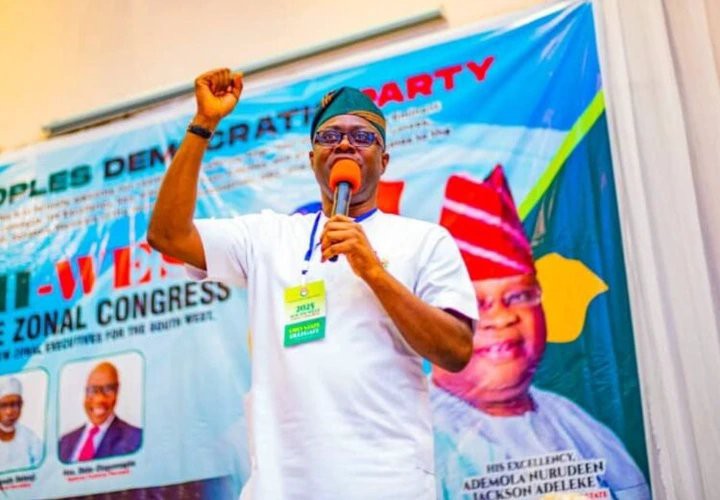As Nigeria’s 2027 elections draw closer, Governor Seyi Makinde of Oyo State has challenged the credibility of the All Progressives Congress (APC) on its anti-corruption stance.
According to Diaspora digital media (DDM) correspondent, he said Nigerians must now ask themselves whether corruption once labeled the primary flaw of the Peoples Democratic Party (PDP) has truly ended under APC rule.
The governor made this statement through his monthly newsletter, in which he reviewed recent political events and his administration’s ongoing efforts.
According to Makinde, the Nigerian people have already “tested the APC experiment” and can now make an informed judgment based on experience.
He said the coming election offers citizens a chance to determine which party truly has the capacity to deliver sustainable development.
“After ten years, it is clear which political party has the temperament to foster economic growth and development,” Makinde stated.
He posed a direct question to the electorate: “Has the so-called corruption that was killing Nigeria under the PDP really died, or has it been fertilised and reborn?”
Makinde argued that now is the time for forward-thinking Nigerians to reflect on what is truly best for the country’s future.
He said those who care about progress must begin seeking the right political alternatives to revive democracy and restore public trust.
“If there has ever been a time in our nation’s history when it is critical to take an interest in our political future, it is now,” he wrote.
Makinde also reflected on the recent PDP Governors’ Forum held in Ibadan, describing it as a vital step in repositioning the party ahead of 2027.
He emphasized that though the next presidential election is still two years away, early preparation is necessary for meaningful change.
“The last two years have been difficult for Nigerians. Decisions have been made some ill-timed, others ill-conceived,” Makinde said.
He added that these decisions have left many citizens worse off, economically and socially, prompting calls for another national reset.
Makinde advocated for a shift in leadership and political orientation that would prioritize governance over politics.
He urged the political elite to begin phasing out outdated ideologies and make room for new approaches rooted in responsibility and public service.
He noted that while politics occupies a brief phase in the political cycle, governance remains the most critical part of public office.
The governor reiterated his commitment to complete his tenure without distraction, promising to stay focused on delivering value to Oyo State citizens.
“I will continue to serve you diligently until 29 May 2027. I will not be distracted,” he said.
On questions about who would succeed him after his second term, Makinde responded that the answer would come at the right time.
“For now, our focus is on assessing our performance in the first two years of this renewed mandate,” he stated.
He explained that his administration is identifying areas of progress, highlighting gaps, and implementing systems to ensure maximum impact in the remaining years.
Makinde reaffirmed his intention to make the last two years of his administration the most productive yet.
Background on corruption under PDP and APC
Corruption has long dominated Nigeria’s political discourse, and both the PDP and APC have faced serious allegations over the years.
The PDP, which governed Nigeria from 1999 to 2015, was often accused of fostering grand-scale corruption at the highest levels of government.
Scandals such as the $2.1 billion arms fund misappropriation under former NSA Sambo Dasuki and missing oil revenues under the NNPC plagued the party’s reputation.
It was partly on this premise that APC won power in 2015, promising to wipe out corruption and institute good governance.
However, under APC leadership, several high-profile corruption cases have also surfaced.
The suspension of EFCC chairman Ibrahim Magu over allegations of fraud, as well as reports of misused COVID-19 intervention funds under Sadiya Umar Farouq’s ministry, dented the administration’s credibility.
More recently, under President Bola Tinubu’s administration, questions have emerged about transparency regarding fuel subsidy savings and public financial management.
Despite its anti-corruption rhetoric, critics argue that the APC has failed to apply accountability measures across the board and often shields party insiders from prosecution.
As the 2027 elections approach, Makinde’s remarks reflect growing concern over whether either party has truly provided a cleaner, more effective governance model.







